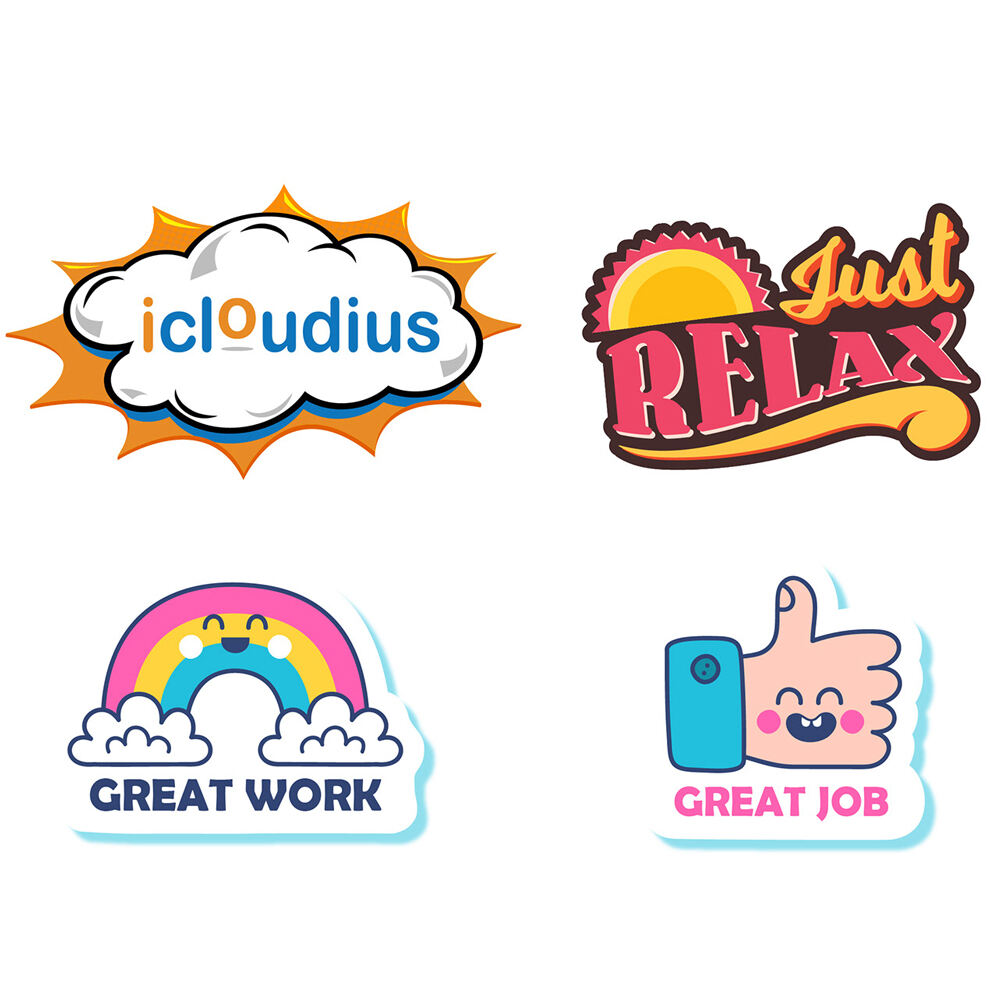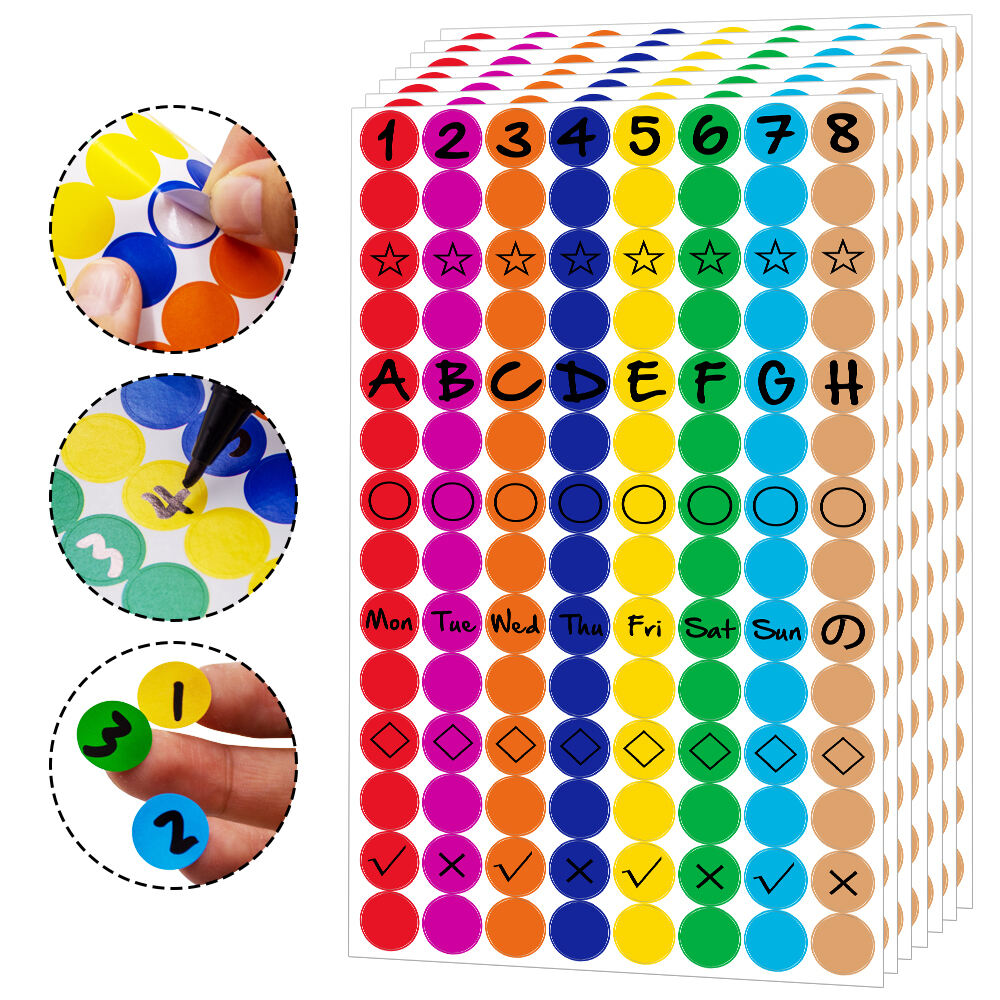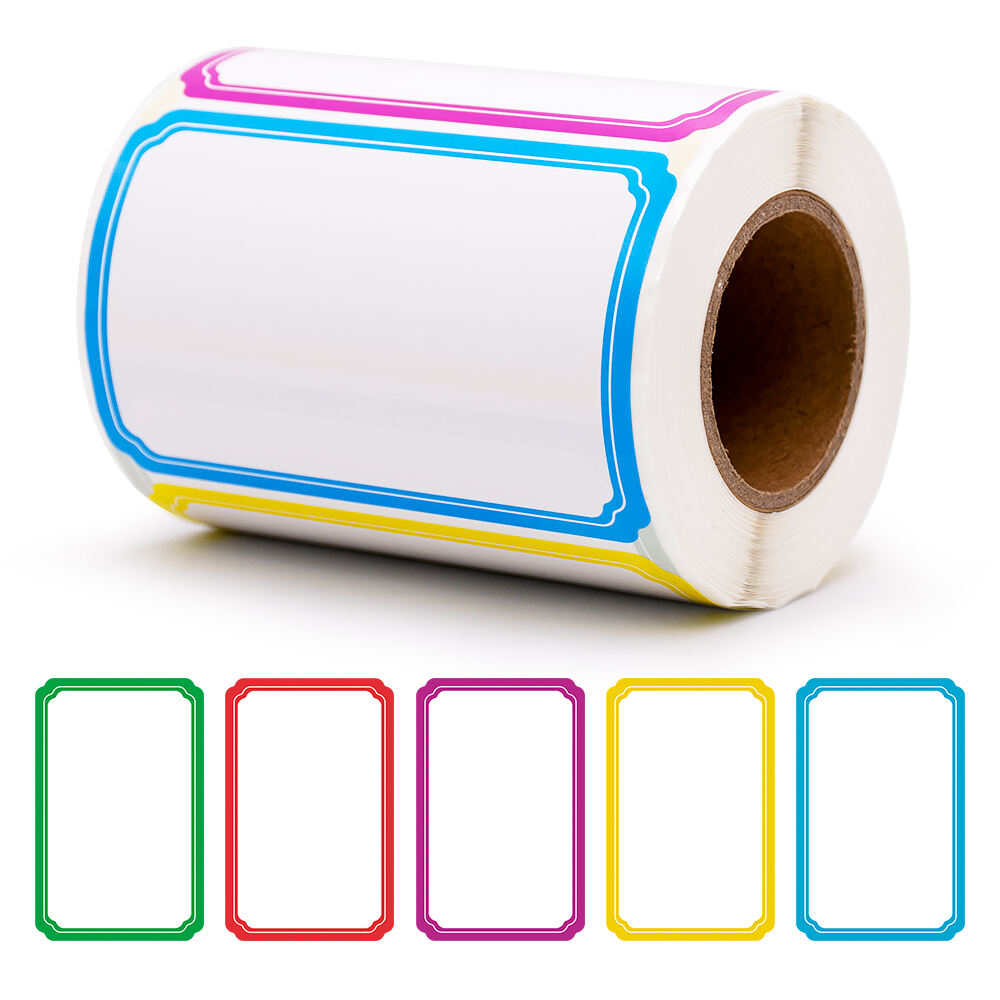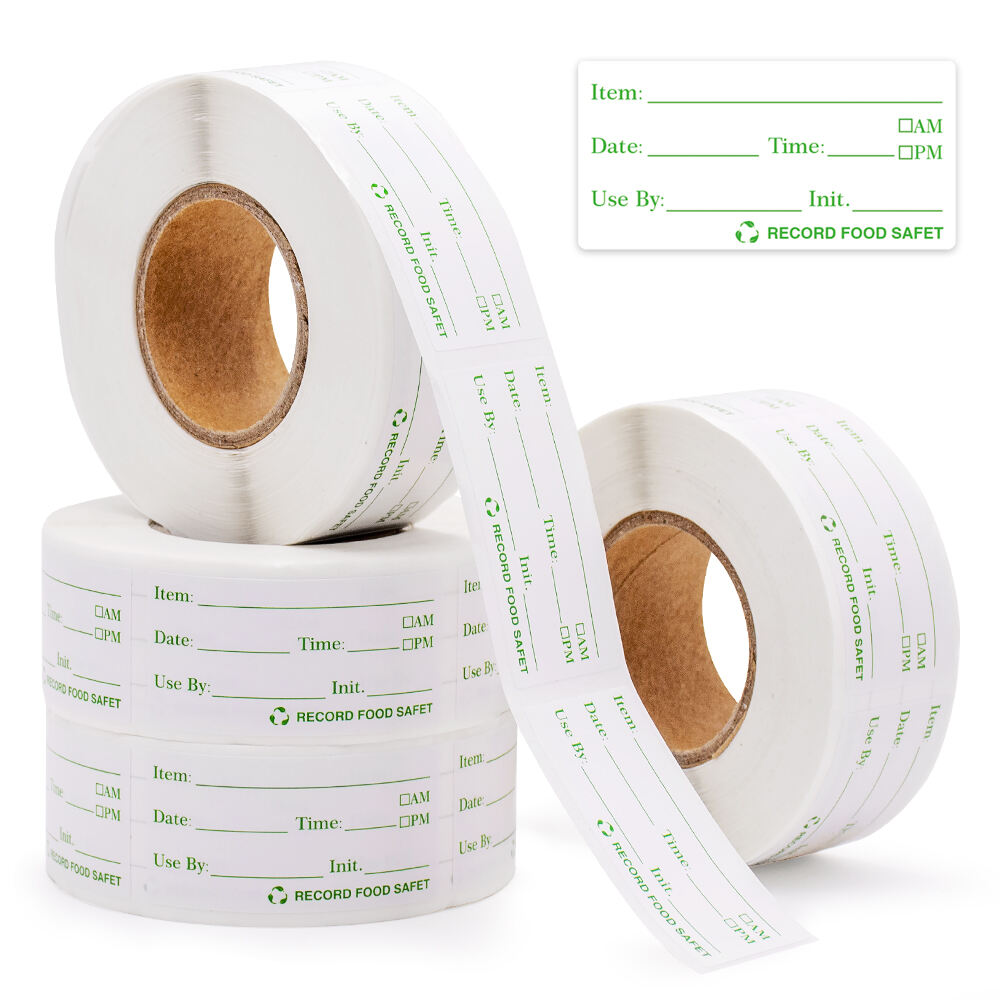Custom Stickers: Enhancing Brand Identity and Product Appeal
The Role of Custom Stickers in Building Brand Identity
How Custom Stickers Create Visual Recognition
Custom stickers play a pivotal role in establishing visual recognition for brands, acting as memorable identifiers that can capture attention and leave a lasting impression. When used consistently across various marketing materials such as packaging, brochures, and promotional items, custom stickers can significantly enhance brand visibility. The importance of colors in sticker design is underscored by research indicating that colors increase brand recognition by up to 80%, making it crucial for businesses to select a palette that resonantly aligns with their brand identity. By utilizing custom stickers for food packaging or product labeling, companies can create distinctive visual cues that reinforce their brand's presence in the minds of consumers.
Strengthening Emotional Connections Through Sticker Design
Custom sticker designs are more than just aesthetic enhancements; they can evoke emotional responses and forge personal connections with target audiences. Unique and well-thought-out designs can resonate with individuals on an emotional level, signaling values and narratives that align with those of the consumer. Brands like KISS Branding have successfully established these connections by incorporating evocative imagery and messaging through their custom stickers, creating a meaningful brand experience that enhances emotional ties. Studies show that emotional branding can significantly boost customer loyalty and retention rates because consumers become emotionally invested in the brand. Moreover, food packaging stickers can be tailored to reflect the emotive essence of the brand’s ethos, establishing a deeper bond with the consumer.
Versatility Across Packaging and Promotional Materials
The versatility of custom stickers makes them invaluable across various applications, from enhancing product packaging to serving as appealing promotional materials. Their ease of use and adaptability mean that they can be integrated into numerous marketing campaigns, increasing brand reach and engagement. For example, stickers for packaging food can be used to highlight product features or promote seasonal offers, while food packaging sticker designs can transform standard packages into engaging, branded experiences. Research supports the notion that multi-use branding materials like stickers yield a higher ROI for businesses, allowing them to achieve maximum impact with relatively low investment. This flexibility ensures that brands can maintain a cohesive identity across different platforms while also refreshing their promotional strategies as needed.
Designing Effective Custom Stickers for Maximum Impact
Choosing Materials for Durability and Aesthetics
When designing custom stickers, selecting the right materials is crucial for both durability and visual appeal. High-quality materials ensure that stickers withstand harsh environmental conditions without losing their charm. Vinyl and paper are commonly used; vinyl is praised for its resilience against weather and wear, ideal for outdoor use, while paper offers cost-effectiveness for indoor applications. According to design experts, opting for vinyl can significantly enhance branding efforts for products exposed to external elements, while paper may be suitable for items meant for short-term use or in controlled environments. These material choices play a pivotal role in reinforcing the brand's image while meeting practical needs.
Color Psychology in Sticker Branding
Color plays a significant role in consumer perception and brand messaging through sticker branding. Using the right colors can evoke specific feelings and influence purchasing decisions. For instance, fast-food brands often use red and yellow to stimulate appetite and attention. Studies indicate that colors can affect up to 85% of purchasing decisions, showcasing their power. Brands like Coca-Cola have successfully harnessed the effect of color psychology with their iconic red, symbolizing excitement and energy. By strategically employing colors, businesses can enhance brand identity and foster a stronger connection with their audience.
Die-Cut vs. Standard Shapes: Pros and Cons
Choosing between die-cut and standard shape stickers involves weighing design flexibility against production costs. Die-cut stickers offer unique and creative designs tailored to brand aesthetics, allowing more artistic expression and differentiation. However, they generally incur higher production costs compared to standard shapes, which are more economical and suitable for budget-conscious campaigns. In cases where distinctiveness and creativity are vital, such as launching a high-profile product, die-cut stickers may be preferred. On the other hand, standard shapes are practical for large-scale distribution due to their cost-efficiency. Industry insights suggest selecting sticker shapes that align with brand objectives and marketing strategies to optimize outcomes.
Top Custom Sticker Solutions for Diverse Branding Needs
Children's Stickers: Engaging Young Audiences
Children’s stickers are a powerful tool for engaging young audiences through vibrant colors and playful imagery. They can be designed to attract and captivate children, sparking creativity while serving as educational tools or rewards. Custom stickers often feature themes such as animals, letters, and numbers, making them popular in educational toys and learning environments. The market for products targeting children is growing, with stickers playing a significant role in the sales of such items. According to market data, there has been a notable increase in the demand for educational products that incorporate visually appealing sticker designs.
Color-Coded Dot Stickers for Organizational Branding
Color-coded dot stickers offer a practical solution for enhancing organizational branding and improving workflow efficiency. They allow organizations to streamline processes through effective categorization and identification. Industries such as logistics and inventory management greatly benefit from these stickers, as they help in organizing documents and marking inventory, thereby optimizing operations. Statistics illustrate a significant improvement in workflow efficiency with the use of color-coded systems, which minimize errors and speed up processes.
Self-Adhesive Name Badge Labels for Professional Events
Self-adhesive name badge labels are essential in professional settings, enhancing networking opportunities at events like conferences and trade shows. These labels offer customization options that boost branding while maintaining a professional appearance. Studies show that such name badges significantly improve attendee interactions by facilitating name recognition. They provide not only an easy identification method but also a platform for promoting corporate identity through personalized designs.
Food Storage Labels: Safety Meets Brand Consistency
Food storage labels play a crucial role in combining safety compliance with brand consistency across packaging. They help meet safety regulations by clearly identifying food contents and dates, thus reducing waste and promoting health standards. Design elements on these labels should align with industry standards while reflecting brand identity, ensuring a cohesive look throughout products. Adopting best practices for food labels enhances brand loyalty and trust among consumers while adhering to necessary safety guidelines.
Custom Stickers for Food Packaging and Safety Compliance
Meeting Industry Standards with Food-Safe Materials
The use of food-safe materials is crucial in the production of custom stickers for food packaging to ensure compliance with health regulations. These materials must adhere to specific certifications and guidelines, such as those set by the FDA, which stipulate criteria for food contact substances. Employing food-safe materials not only helps in meeting industry standards but also mitigates the risk of contamination, safeguarding consumer health. Regulatory bodies like the EPA emphasize safety compliance as a significant factor in maintaining the integrity of food products, underscoring the necessity for manufacturers to prioritize these standards in their production processes.
Waterproof and Oil-Resistant Sticker Solutions
Waterproof and oil-resistant stickers are essential in the food industry, particularly when labeling products that may be exposed to liquids and oils. These stickers ensure the longevity and clarity of the information displayed, even in challenging conditions, thus maintaining brand consistency and visibility. The durability and functionality of waterproof and oil-resistant stickers enhance the brand experience for consumers, as demonstrated in case studies where businesses reported increased customer satisfaction due to the reliability of these labels in preserving product aesthetics and information integrity.
Designing Labels That Enhance Shelf Appeal
Designing labels that enhance shelf appeal involves strategic use of aesthetics, color balance, and visibility to attract consumer attention. Successful brands, like Coca-Cola and Nestlé, have harnessed effective sticker designs to differentiate themselves, ensuring their products stand out on crowded shelves. Research studies highlight the impact of label design on consumer behavior, indicating that attractive and well-thought-out sticker designs can significantly influence purchase decisions, emphasizing the importance of aligning label aesthetics with brand identity and customer preferences.
 EN
EN
 AR
AR
 HR
HR
 CS
CS
 DA
DA
 NL
NL
 FI
FI
 FR
FR
 DE
DE
 EL
EL
 HI
HI
 IT
IT
 JA
JA
 KO
KO
 PL
PL
 PT
PT
 RU
RU
 ES
ES
 SV
SV
 TL
TL
 ID
ID
 SR
SR
 SK
SK
 SL
SL
 VI
VI
 HU
HU
 TH
TH
 TR
TR
 FA
FA
 AF
AF
 MS
MS
 IS
IS
 HY
HY
 BN
BN
 LO
LO
 LA
LA
 MN
MN
 MY
MY
 KK
KK
 UZ
UZ







